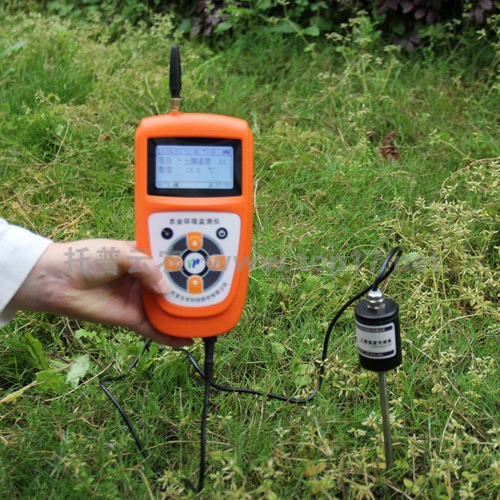Many people think that planting crops is to manage water and fertilizers. As long as the water and fertilizers are managed properly, there will not be much problem with the growth of crops. Increasing production and income is just around the corner. There will be direct or indirect effects, so in modern agricultural research and production, the application of soil temperature testers to detect and record changes in soil temperature is also a very important content.

Soil temperature has a great influence on crop growth and microbial activity in the soil, the transformation of various nutrients, soil moisture evaporation and movement. At different stages of crops from sowing to maturity, certain soil temperature conditions are needed, for example, the suitable germination temperature for rice is 20-25 ° C, the suitable germination temperature for tomato is 20-30 ° C, and the optimum germination temperature for cabbage is 15-25 ° C. . In the process of spring sowing, pay special attention to the change of soil temperature, use soil temperature tester to detect and guide, you can choose the right time for sowing, effectively improve the sowing effect, ensure the normal germination of seeds, and lay the foundation for subsequent planting basis.
In addition, we know that crop growth depends on soil, and soil quality is closely related to microbial activity. Studies have shown that soil temperature has a significant effect on soil microbial activity. Only within the appropriate temperature range, microbial activity is more active. Generally speaking, soil microbial activity is suitable for soil temperature 25 ℃ -37 ℃, the minimum is 5 ℃, the maximum does not exceed 45 ℃ -50 ℃. When the soil temperature is too low, the microbial activity is weakened, or even completely stopped, the organic matter is difficult to decompose, and the effective nutrients are lacking. Therefore, from the perspective of improving soil fertility, operations such as fertilization should also pay attention to changes in soil temperature.
It can be seen that the soil temperature tester has important application value in the guidance of planting management. Using this instrument scientifically can not only gain a deeper understanding of the impact of soil temperature on the growth of different crops, but also provide guidance materials for scientific production. In the work, using instruments to pay close attention to changes in soil temperature can also be targeted to achieve benefits and avoid harm, meet the needs of crop growth and development, avoid losses, improve planting effectiveness, and achieve the goal of increasing production and efficiency.

Selective Laser Sintering - Sls
Stereo Light Curing Molding - Sla
It mainly uses photosensitive resin as a raw material, and utilizes the characteristic that liquid photosensitive resin will cure quickly under ultraviolet laser beam irradiation. The photosensitive resin is generally liquid, and it immediately initiates a polymerization reaction and completes curing when irradiated with a certain wavelength of ultraviolet light (250 nm to 400 nm). SLA focuses on the surface of the light-curing material by focusing ultraviolet light of a specific wavelength and intensity to solidify it sequentially from point to line and from line to surface, thereby completing the drawing of a layered cross-section.

Selective Laser Sintering - Sls,Sls 3D Printing Service,Laser Sintering 3D Printing,Selective Laser Printing
Ningbo Rongna Technology Co.,Ltd , https://www.machiningcustom.com